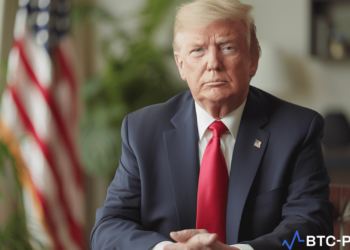South Korea to Classify Some NFTs as Virtual Assets Ahead of New Crypto Regulations
South Korea’s Financial Services Commission (FSC) is shifting its stance on nonfungible tokens (NFTs), intending to classify certain types as virtual assets. This development comes in anticipation of the nation’s upcoming crypto regulatory framework.
Key Changes in NFT Classification
NFTs, known for their uniqueness and non-replicability, have traditionally been viewed differently from cryptocurrencies. However, a recent report from the FSC, dated June 10, highlights that NFTs exhibiting characteristics such as divisibility, mass production, or use as a payment method will now be classified as virtual assets.
Obligations for NFT Issuers
Under the new classification, businesses issuing NFTs identified as virtual assets must report to the South Korean watchdog. This directive aligns with the upcoming implementation of the country’s first comprehensive crypto regulatory framework on July 19.
Regulatory Insights
Jeon Yo-seop, the FSC’s Financial Innovation Planning head, emphasized that NFT collections minted in large quantities could be used as payment, akin to cryptocurrencies. For example, if a million NFTs are issued within a collection, they could be traded and utilized as payment methods, prompting their classification as virtual assets.
Case-by-Case Review Approach
Rather than a single standard, the FSC will adopt a case-by-case review approach to classify NFTs as virtual assets. Additionally, NFTs with financial security characteristics, as outlined in the country’s Capital Markets Act, may also be deemed securities.
Interest Eligibility and Exclusions
The new guidelines suggest that some NFTs might qualify for interest when deposited in exchanges. A notice from the FSC last year mandated that virtual assets deposited on crypto exchanges should be eligible for interest generation. However, standard NFTs and Central Bank Digital Currencies (CBDCs) are excluded from this benefit.
Part of a Broader Regulatory Framework
This new framework is part of South Korea’s broader crypto legislation known as the Virtual Asset User Protection Act. Scheduled to take effect a week after the NFT classification directive, the act aims to criminalize malpractices such as insider trading, market manipulation, and fraudulent transactions within the crypto space.
Compliance and Enforcement
Passed by the National Assembly in 2023, the bill provided cryptocurrency-focused entities with a one-year grace period to adhere to the new regulations. To ensure robust enforcement, South Korean regulators have also established a specialized crypto crimes unit, the Joint Virtual Asset Crime Investigation Unit, comprising 30 experts from seven national agencies.
As South Korea moves forward with these regulatory changes, the crypto landscape within the nation is poised for significant transformation, impacting both issuers and investors in the NFT and broader cryptocurrency markets.










